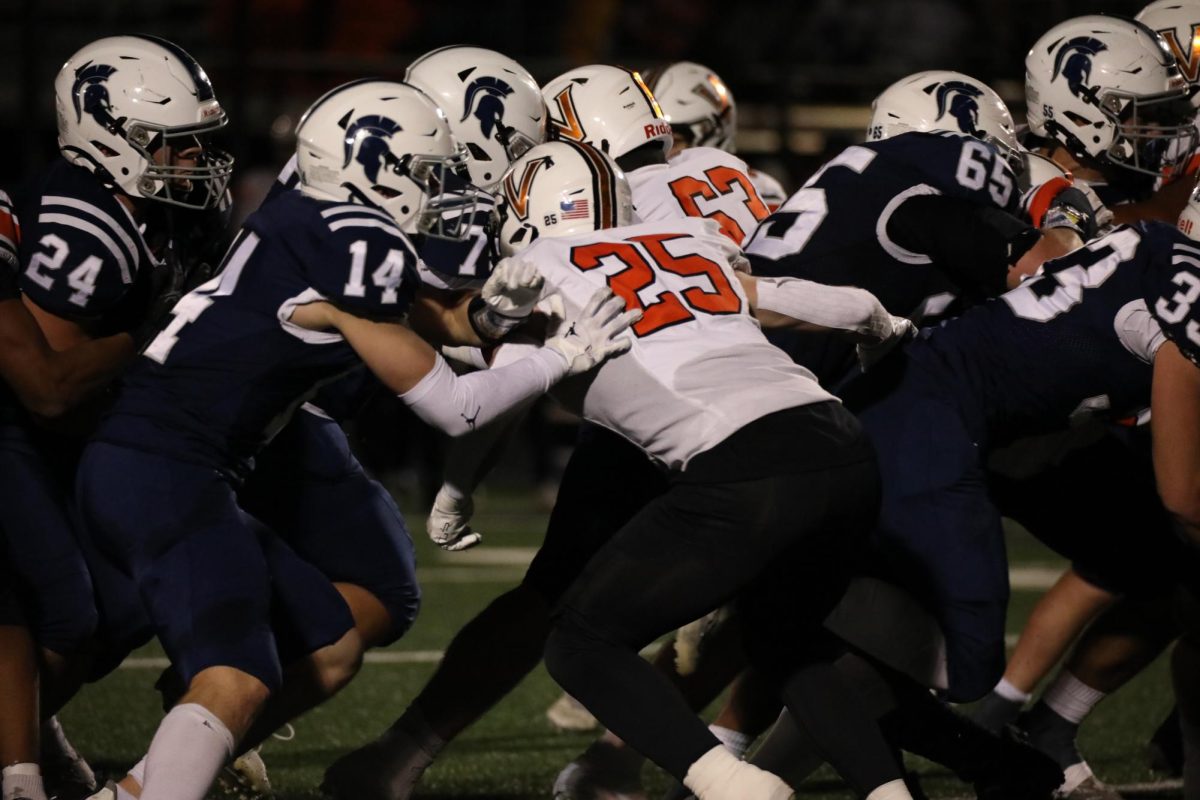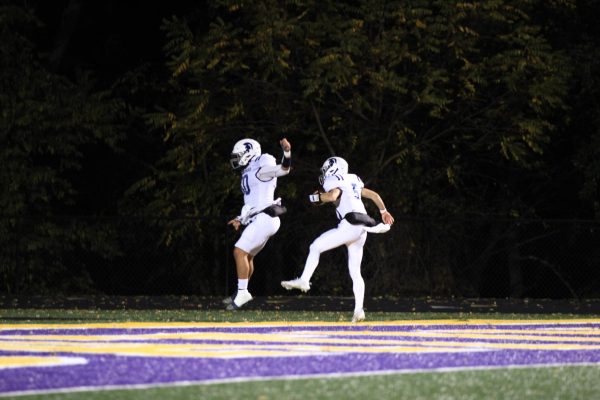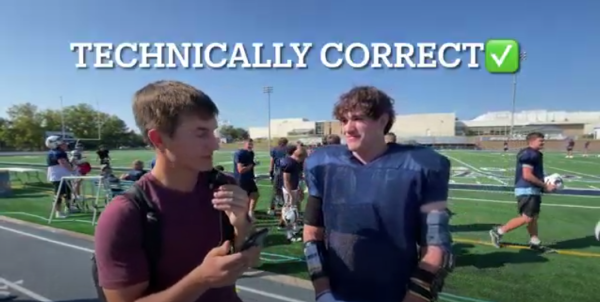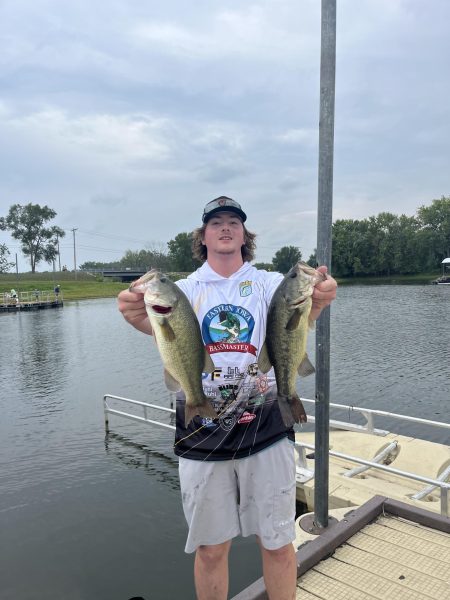Football is Iowa’s most popular spectator sport. High school football is no exception to this. Throughout the course of the high school season, various media outlets rank teams from all classifications based on their performance.
Despite the varying opinions from these sources, when playoff time rolls around, only three letters matter when seeding teams for their playoff matchups.
Those letters are RPI.
Beginning in 2018, the Iowa High School Athletic Association (IHSAA) began using a playoff seeding system based on the Ranking Percentage Index (RPI) for 3A, 4A and 5A football divisions.
However, it might not accurately represent the skill of certain teams.
Unlike most high school sports, football does not use conferences to determine standings. Although most schools, including PV, are part of a conference like the Mississippi Athletic Conference (MAC), their standings within this conference are irrelevant to how they are ranked compared to other teams in the state.
Instead, football uses districts, where teams are grouped into pods and play other teams of similar abilities and geographic locations within their district. In 5A football, which PV plays in, RPI is used to determine the top 16 teams that qualify for the playoffs, while in 4A and 3A, the district champions and runners-up are given automatic bids and the remainder of the teams are determined based on RPI.
The RPI formula takes into account three factors: winning percentage, opponents’ winning percentage and opponents of opponents’ winning percentage. These percentages are weighted differently based on how important the IHSAA believes they are in determining the strength of a team.
RPI = (0.375 winning percentage) + (0.375 opponents’ winning percentage) + (0.25 opponents of opponents’ winning percentage).
Math teacher and football coach Tony Smith believes that RPI does a better job of seeding teams than previous systems, which just looked at record. “I think they [the IHSAA] get the four best teams to the Dome…A team like [West Des Moines] Valley finished 5-4 and went to the dome. I think it has done a better job than just looking at record,” he stated.
The formula was created to even out differences between teams with different strengths of schedule, shown by a team’s overall winning percentage having the same weight as their opponents’ winning percentage.
However, the issue with RPI lies in the way the sections are set up geographically.
There is no hiding the fact that Des Moines area teams have dominated Iowa high school football. Since 2000, teams from the region have won the state championship at the highest level of high school football, 4A or 5A, 18 out of 23 times.
Because of their strength and geographic location, all of these teams play within the same district and therefore play each other throughout the course of the year. While this clearly separates the best teams, such as Southeast Polk, who went undefeated while playing one of the most difficult schedules in the state, it also allows very good teams to not have good records because of the strength of competition they play.
A perfect example of this was Pleasant Valley’s first-round playoff opponent, West Des Moines Valley. Following week eight, Valley sat with just three wins and five losses. They entered the playoffs ranked 4-5 ranked 14th based on RPI.
The catch is that they played the most difficult schedule in the state. With a 0.625 opponent winning percentage, Valley went against the best teams in the state week in and week out, ending up on the losing end more times than not.
Not only did they play the best teams, but they also played them close. Valley lost to Southeast Polk by just six points and top-five ranked Waukee Northwest by three. They have now won their first two playoff games and will rematch Southeast Polk in the state semifinals. Clearly, this is a team that is better than their RPI ranking.
This does not take anything away from PV, who lost to Valley in the first round of the playoffs on Oct. 27. The Spartans came into the playoffs ranked third in RPI with an impressive 8-1 record playing a schedule that was on par in difficulty with most of the teams in the RPI top ten rankings. They were clearly a team deserving of their playoff seeding.
Smith believes that PV’s schedule prepared the team well for their playoff matchup. “We had played in a lot of close games whereas years before we might’ve only had one or two. It was definitely beneficial…We saw a lot of good teams throughout the year and we won a lot of close games,” he stated.
However, despite PV being accurately seeded, the matchup with Valley does show that there might need to be more that determines a team’s seeding than just RPI, which seems to undervalue strength of schedule and overvalue winning percentage in a 5A division where the top 15 teams are separated by razor-thin margins and where some districts are better than others.
Senior football player Mason Breen believes that RPI is a good ranking system, but scheduling is to blame for improper seeding. “I think the concept of the RPI would do a good job if the regular season scheduling was better. In order for the RPI to work there needs to be more games between the schools in Eastern Iowa and the schools in Western Iowa. This would prevent very talented schools from Central Iowa having poor records that don’t accurately display where they rank in the state,” he explained.
A change to the RPI system was already implemented at the smaller levels of IHSAA football. Before the 2023 season, four classes of Iowa football, Eight Player, A, 1A and 2A, implemented rankings committees to determine playoff seeding. These groups are made up of a variety of individuals including two former head coaches, one media member and three IHSAA staff members, all representing different areas of the state.
Such committees could be very valuable to properly seeding teams in 5A football. Although very different, the College Football Playoff uses a committee to select the four teams that will be playing in it and does not use statistical measures as the sole representation of a team’s ability. This change came in 2014 after the Bowl Championship Series (BCS) Formula was abandoned.
A frequently discussed topic when debating which teams should get in the College Football Playoff is the “eye test” which is how a team looks when they perform against different levels of competition. A team like WDM Valley would benefit from the eye test because it would show that they outperformed their record. Committee members could then use aspects from RPI to back this up such as their strength of schedule.
Breen explained that the RPI rankings usually succeed in determining who should be in the playoffs, but not what the matchups should be. “It [the RPI system] usually does a good job of selecting the top 16 teams, it just usually does not seed them correctly,” he stated.
Smith agreed that RPI does a good job of getting the right teams into the playoffs. “If you play a good schedule you can still get in with RPI. Before, when you could only win your district or get second, you could lose a game by three points and not get in,” he explained.
Using the RPI rankings and a committee that could correctly evaluate and interpret them could be the way to achieve a more balanced playoff field. This would allow the highest ranked teams to play easier competition in the opening rounds and teams with more difficult opponents to be more accurately seeded.
Because teams do not have the room in their schedule or the traveling capabilities to play everyone at their level around the state, playoff seeding will never be entirely correct.
Despite this, using RPI as a tool instead of an end all be all would move Iowa High School football towards more accurate playoff seeding that accounts for differences between regions.


















